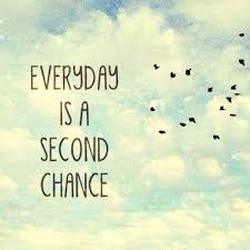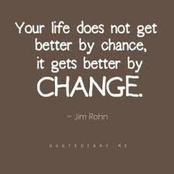Understanding Addiction
Addiction is a chronic disease. Research reveals that addiction is a disease of the brain, much like Alzheimer's disease or a brain tumor. Therefore, people with substance-related problems should actually receive sympathy, rather than anger or blame, just as they would if they had any other medical condition.
Approaching addiction as a medical condition helps those who are in need of recovery and their families to move past the denial that often accompanies the disease. It also improves the likelihood that recovery will succeed because feelings of anger, guilt and disappointment can get in the way of the care and communication that is necessary to overcome substance-related problems. Finally, it allows parents of young adults with substance-related problems, to more honestly address how the issue has affected their own lives, including the negative impact it may have had on their work performance, health and well-being.
Addiction is a chronic disease. Research reveals that addiction is a disease of the brain, much like Alzheimer's disease or a brain tumor. Therefore, people with substance-related problems should actually receive sympathy, rather than anger or blame, just as they would if they had any other medical condition.
Approaching addiction as a medical condition helps those who are in need of recovery and their families to move past the denial that often accompanies the disease. It also improves the likelihood that recovery will succeed because feelings of anger, guilt and disappointment can get in the way of the care and communication that is necessary to overcome substance-related problems. Finally, it allows parents of young adults with substance-related problems, to more honestly address how the issue has affected their own lives, including the negative impact it may have had on their work performance, health and well-being.
Addictive Substance Take Over
While those with substance-related problems do make the initial decision to start using, the addictive substances quickly take over. Alcohol and drugs alter how the brain transmits information, and the person's ability to remember, make decisions and have normal emotional responses may also be impaired. Unfortunately, simply removing the substance is not enough to overcome the damage.
Shame
Unlike the parents of children who suffer from other medical conditions, such as diabetes or cancer, if your child has a substance-related problem, you're unlikely to seek support from your community. You may feel embarrassed by your child's illness, or even blame yourself for its onset. Because of the stigma attached to addiction, you might not even confide in your family or closest friends. But you shouldn't feel ashamed or alone.
Warning Signs of Addiction
- Moodiness, irritability, anger, aggressive behavior
- Depression
- Incoherence, forgetfulness, slurred speech
- Clumsiness, poor balance, lack of coordination
- Rapid speech, uncharacteristic talkativeness, restlessness
- Irresponsibility, recklessness, bad judgment
- Secrecy
- Thefts or sudden requests for money
- Decreased motivation
- Lack of interest in former activities, such as school clubs and sports
- New friends replacing old friends
- Problems at school, such as discipline issues, poor grades, and unexplained going on in your child's academic and social life
While those with substance-related problems do make the initial decision to start using, the addictive substances quickly take over. Alcohol and drugs alter how the brain transmits information, and the person's ability to remember, make decisions and have normal emotional responses may also be impaired. Unfortunately, simply removing the substance is not enough to overcome the damage.
Shame
Unlike the parents of children who suffer from other medical conditions, such as diabetes or cancer, if your child has a substance-related problem, you're unlikely to seek support from your community. You may feel embarrassed by your child's illness, or even blame yourself for its onset. Because of the stigma attached to addiction, you might not even confide in your family or closest friends. But you shouldn't feel ashamed or alone.
Warning Signs of Addiction
- Moodiness, irritability, anger, aggressive behavior
- Depression
- Incoherence, forgetfulness, slurred speech
- Clumsiness, poor balance, lack of coordination
- Rapid speech, uncharacteristic talkativeness, restlessness
- Irresponsibility, recklessness, bad judgment
- Secrecy
- Thefts or sudden requests for money
- Decreased motivation
- Lack of interest in former activities, such as school clubs and sports
- New friends replacing old friends
- Problems at school, such as discipline issues, poor grades, and unexplained going on in your child's academic and social life
Common signs and symptoms of a drug overdose:
If you are living with a person in active addiction, please get Naloxone. In as little as 20 minutes, you can learn techniques to save the life of a loved-one, friend, co-worker, neighbor ... anyone ... who is experiencing an overdose caused by prescription narcotics or heroin. You can also find out where you can obtain the lifesaving, easy-to-use antidote, naloxone, as well as access relevant information by clicking on the link below.
https://www.getnaloxonenow.org/#home
- Dilated pupils.
- Unsteady walking.
- Chest pain.
- Severe difficulty breathing, shallow breathing, or complete cessation of breath.
- Gurgling sounds that indicate the person’s airway is blocked.
- Blue lips or fingers.
- Nausea or vomiting.
- Abnormally high body temperature.
- Violent or aggressive behavior.
- Disorientation or confusion.
- Paranoia.
- Agitation.
- Convulsions or tremors.
- Seizures.
- Unresponsiveness.
- Unconsciousness.
- Death.
If you are living with a person in active addiction, please get Naloxone. In as little as 20 minutes, you can learn techniques to save the life of a loved-one, friend, co-worker, neighbor ... anyone ... who is experiencing an overdose caused by prescription narcotics or heroin. You can also find out where you can obtain the lifesaving, easy-to-use antidote, naloxone, as well as access relevant information by clicking on the link below.
https://www.getnaloxonenow.org/#home

Sobriety Resources: (each is a website link)

Family Resources: (each is a website link)
To Find a Detox:
http://www.mabhaccess.com/substanceuse.aspx
Under Zip enter your current zip code
Under miles select travel miles
4. Hit "Search" - This will display for you the beds currently available within the mile radius you selected.
Treatment Resources: (each is a website link)
Private Pay and/or Insurance Acceptance: (each is website link)
Outpatient: (each is a website link)
Public & State Services: (each is a website link)
http://www.mabhaccess.com/substanceuse.aspx
- Select Login in the right hand corner
- Select "Substance Use Search"
- Under Service drop down menu select "ATS"
Under Zip enter your current zip code
Under miles select travel miles
4. Hit "Search" - This will display for you the beds currently available within the mile radius you selected.
Treatment Resources: (each is a website link)
- Learn to Cope - Treatment Locator
- SAMHSA (Substance Abuse Mental Health Services Association)
- Recovery Binder: https://www.recoverybinder.org/about
Private Pay and/or Insurance Acceptance: (each is website link)
- The Plymouth House, Plymouth, NH
- New Freedom Academy, Canterbury, NH
- Green Mountain Treatment Center, Effingham, NH
- Banyan Treatment Center - Matt: 1-855-903-1770
- The Megan House Foundation
Outpatient: (each is a website link)
Public & State Services: (each is a website link)
Listed Below are the Sober Homes that have been vetted by Zack's Team.
MAINE
The Landing, Portland, Maine
Sober living for Men
https://www.thelandingrecovery.com/
Chestnut Sober Living for Men
https://www.chestnutstreetsoberliving.org/
Portland Sober Living
Sober living for Men
http://www.portlandsoberliving.com/
Washington Ave, Portland, Maine
Sober living for Women
Contact Jade at 774-289-3007
https://www.facebook.com/washingtonavesoberliving/
Grace House
Sober living for Women
https://www.gracehouseforwomen.com/
MASSACHUSETTS
Zack’s House
Sober living for Men
http://lowellhouseinc.org/zacks-house
Rockland Recovery
Sober living for Men
https://rocklandrecovery.com/
Brook Retreat
Sober living for Men
781-285-5760
http://brookretreat.org/
H.O.W. House
Sober living for Women
Contact Sheila at 617-938-2795
https://www.how-house.org
Erin’s House
Sober living for Women
https://themeganhouse.org/house-and-program/about-the-program/erins-house-program-application/
Haven of Hope
Sober living for Women
http://havenofhopemethuen.com/
Into Action Recovery
Sober living for Men
https://www.intoactionrecovery.org/
New Hampshire
Magnolia House
Sober living for Women
https://magnoliahousenh.org/
The Granite House
Sober living for Men and Women
https://www.facebook.com/GraniteHouse/
Into Action Sober Living
https://www.facebook.com/intoactionsl/
MAINE
The Landing, Portland, Maine
Sober living for Men
https://www.thelandingrecovery.com/
Chestnut Sober Living for Men
https://www.chestnutstreetsoberliving.org/
Portland Sober Living
Sober living for Men
http://www.portlandsoberliving.com/
Washington Ave, Portland, Maine
Sober living for Women
Contact Jade at 774-289-3007
https://www.facebook.com/washingtonavesoberliving/
Grace House
Sober living for Women
https://www.gracehouseforwomen.com/
MASSACHUSETTS
Zack’s House
Sober living for Men
http://lowellhouseinc.org/zacks-house
Rockland Recovery
Sober living for Men
https://rocklandrecovery.com/
Brook Retreat
Sober living for Men
781-285-5760
http://brookretreat.org/
H.O.W. House
Sober living for Women
Contact Sheila at 617-938-2795
https://www.how-house.org
Erin’s House
Sober living for Women
https://themeganhouse.org/house-and-program/about-the-program/erins-house-program-application/
Haven of Hope
Sober living for Women
http://havenofhopemethuen.com/
Into Action Recovery
Sober living for Men
https://www.intoactionrecovery.org/
New Hampshire
Magnolia House
Sober living for Women
https://magnoliahousenh.org/
The Granite House
Sober living for Men and Women
https://www.facebook.com/GraniteHouse/
Into Action Sober Living
https://www.facebook.com/intoactionsl/
Recommended Books - By Age
Understanding addiction and the way it affects those around us can be a hard topic to cover not only for children, but also for adults. Books are a resource we can use to educate and lessen confusion around addiction. These are some recommended readings on addiction that cover all age groups from two to adulthood. These books were selected based on rater reviews of 4.5 or higher and their availability. These books are intended to cover a variety of situations where a reader way encounter substance abuse. All of these books are available through Amazon or may be available through your local library.
Ages 2-5
Stoney the Pony – Linda Myers
Ages 5-11
Critters Cry Too – Anthony Curcio
My Daddy Loves Me, My Daddy has a Disease – Claudia Black
An Elephant in the Living Room – Jill M. Hastings
The Brown Bottle – Penny Jones
Ages 12-20
For Teenagers Living With a Parent Who Abuses Alcohol/Drugs - Edith Lynn Hornik-Beer
Parents and Older Adult Children
Addict In The Family: Stories of Loss, Hope, and Recovery – Beverly Conyers
Why Don't They Just Quit?: Hope for Families Struggling with Addiction – Joe Herzanek
Addiction: Why Can't They Just Stop? - John Hoffman, Susan Froemke
Don't Let Your Kids Kill You: A Guide for Parents of Drug and Alcohol Addicted Children – Charles Rubin
Getting Your Loved One Sober, Robert Meyers & Brenda L. Wolfe
Reclaim Your Life, Carole Bennett
Understanding addiction and the way it affects those around us can be a hard topic to cover not only for children, but also for adults. Books are a resource we can use to educate and lessen confusion around addiction. These are some recommended readings on addiction that cover all age groups from two to adulthood. These books were selected based on rater reviews of 4.5 or higher and their availability. These books are intended to cover a variety of situations where a reader way encounter substance abuse. All of these books are available through Amazon or may be available through your local library.
Ages 2-5
Stoney the Pony – Linda Myers
Ages 5-11
Critters Cry Too – Anthony Curcio
My Daddy Loves Me, My Daddy has a Disease – Claudia Black
An Elephant in the Living Room – Jill M. Hastings
The Brown Bottle – Penny Jones
Ages 12-20
For Teenagers Living With a Parent Who Abuses Alcohol/Drugs - Edith Lynn Hornik-Beer
Parents and Older Adult Children
Addict In The Family: Stories of Loss, Hope, and Recovery – Beverly Conyers
Why Don't They Just Quit?: Hope for Families Struggling with Addiction – Joe Herzanek
Addiction: Why Can't They Just Stop? - John Hoffman, Susan Froemke
Don't Let Your Kids Kill You: A Guide for Parents of Drug and Alcohol Addicted Children – Charles Rubin
Getting Your Loved One Sober, Robert Meyers & Brenda L. Wolfe
Reclaim Your Life, Carole Bennett
